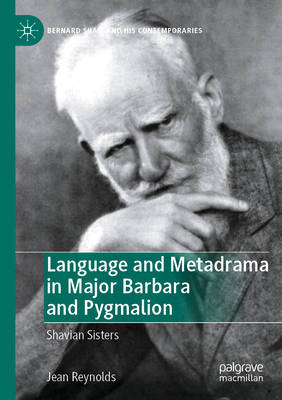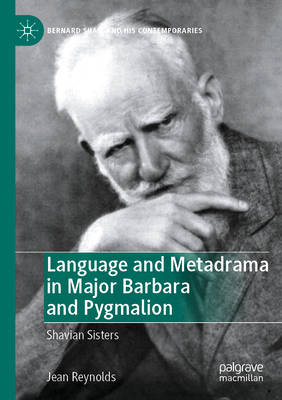
- Retrait gratuit dans votre magasin Club
- 7.000.000 titres dans notre catalogue
- Payer en toute sécurité
- Toujours un magasin près de chez vous
- Retrait gratuit dans votre magasin Club
- 7.000.000 titres dans notre catalogue
- Payer en toute sécurité
- Toujours un magasin près de chez vous
Description
This book focuses on two important topics in Shaw's Major Barbara and Pygmalion that have received little attention from critics: language and metadrama. If we look beyond the social, political, and economic issues that Shaw explored in these two plays, we discover that the stories of the two "Shavian sisters"-- Barbara Undershaft and Eliza Doolittle--are deeply concerned with performance and what Jacques Derrida calls "the problem of language." Nearly every character in Major Barbara produces, directs, or acts in at least one miniature play. In Pygmalion, Henry Higgins is Eliza's acting coach and phonetics teacher, as well as the star of an impromptu, open-air phonetics show. The language content in these two plays is just as intriguing. Did Eliza Doolittle have to learn Standard English to become a complete human being? Should we worry about the bad grammar we hear at Barbara Undershaft's Salvation Army shelter? Is English losing its precision and purity?Meanwhile, in the background, Shaw keeps reminding us that language and theatre are always present in our everyday lives--sometimes serving as stabilizing forces, and sometimes working to undo them.
Spécifications
Parties prenantes
- Auteur(s) :
- Editeur:
Contenu
- Nombre de pages :
- 229
- Langue:
- Anglais
- Collection :
Caractéristiques
- EAN:
- 9783030960735
- Date de parution :
- 03-03-23
- Format:
- Livre broché
- Format numérique:
- Trade paperback (VS)
- Dimensions :
- 148 mm x 210 mm
- Poids :
- 299 g







